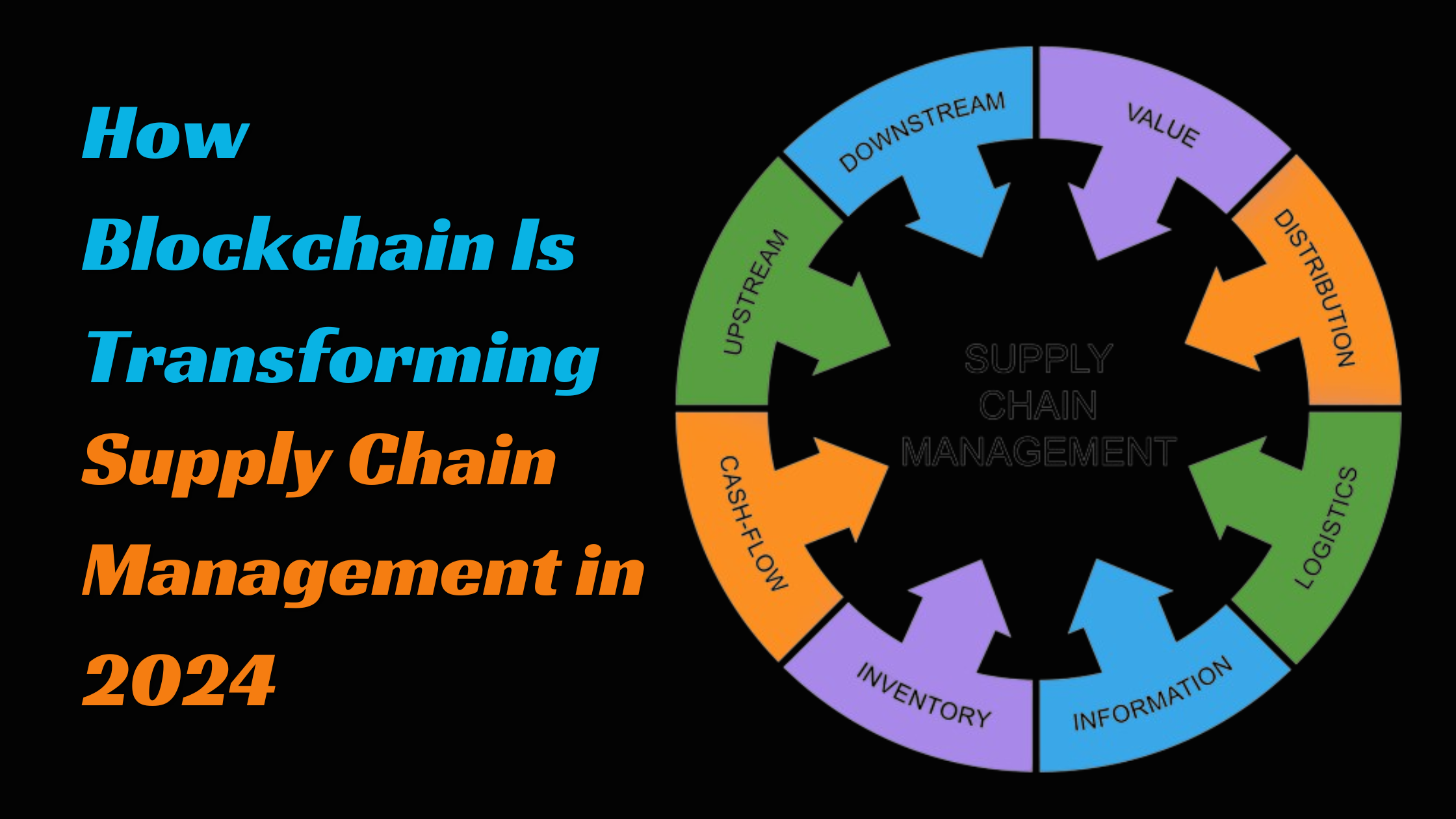How Blockchain Is Transforming Supply Chain Management in 2024
Blockchain technology is revolutionizing many industries’ procurement processes by decentralizing data and opening up. Its impact on procurement and supply chain management is particularly noteworthy, as this post explores how blockchain facilitates these changes in 2024.
Originally associated with Bitcoin, blockchain’s application has broadened significantly. It’s now a pivotal tool in procurement strategies, offering unmatched data security, transparency, and immutability. This primarily benefits procurement professionals in various industries, particularly supply chains. Companies aiming to enhance their procurement processes and secure operations increasingly adopt blockchain. This adoption is driven by the desire for more transparent, safe, and efficient procurement practices.
Integrating blockchain into procurement and supply chain operations signifies a significant shift towards more streamlined and reliable processes. By ensuring that data remains unaltered and easily verifiable, blockchain is helping procurement departments across industries to achieve greater efficiency and security.
Understanding Blockchain Technology
Blockchain is a system that stores data across many servers worldwide, meaning no one owns the whole network. This setup increases data safety and truthfulness. In blockchain, data is grouped into blocks linked together in a chain. Every time someone makes a transaction, it is added to the block and visible to everyone in the network. This way, every transaction is open and can be checked by anyone, making the system trustworthy and transparent.
Benefits for Businesses
Blockchain brings several critical advantages to companies:
- Transparency: Since every transaction is recorded and open for verification, blockchain creates a system where trust is built into the process. Everyone involved can see and confirm transactions.
- Security: Blockchain uses complex maths (cryptographic hashing) and group agreement (consensus mechanisms) to protect data. This makes it very hard for anyone to change past data without noticing.
- Efficiency: By cutting out intermediaries, blockchain makes processes quicker and cheaper. It allows for direct transactions and automates agreements through smart contracts, which execute automatically when conditions are met.
- Traceability: Blockchain excels at tracking goods moving through the supply chain. Each product’s journey is recorded, from origin to sale, which is crucial for verifying the authenticity of products and preventing counterfeit goods. This traceability benefits consumer trust and companies wanting to ensure their products’ integrity.
- Faster Transactions: Traditional banking transactions, especially international ones, can take days to clear due to the need for verification by various intermediaries. Blockchain can automate these processes, enabling transactions to occur in minutes or even seconds. This speed is a significant advantage in today’s fast-paced business environment.
- Reduced Errors: Blockchain significantly lowers the risk of human error by automating transaction recording through intelligent contracts and having a secure, immutable ledger. Once recorded, a transaction cannot be altered, minimizing the chances of disputes and the need for reconciliation.
Blockchain in Supply Chain Management
Blockchain technology has the potential to revolutionize supply chain management by offering real-time visibility into every aspect of the supply chain. This visibility ensures that all parties involved, from manufacturers to end consumers, can trace the journey of a product in real time. Blockchain can authenticate the legitimacy of products, combat counterfeit goods, and ensure compliance with regulatory requirements. Furthermore, it facilitates the automation of contract executions through smart contracts, reducing delays and human errors.
Advantages of Blockchain in Supply Chains
Advantages of Blockchain in Supply Chains
- Increased Transparency and Traceability: Blockchain enables tracking products from origin to delivery. This ensures transparency throughout the supply chain and allows consumers to verify the authenticity of products, fostering trust.
- Enhanced Security and Reduced Risks of Fraud: Blockchain’s decentralized nature and cryptographic security significantly minimize the risks of unauthorized access and fraud. Distributing its data across a network makes it much harder for malicious activities to succeed.
- Improved Efficiency and Reduced Costs: Blockchain automates many processes within the supply chain, decreasing the need for intermediaries. This automation leads to lower transaction costs and higher efficiency, streamlining operations from production to delivery.
- Greater Collaboration and Partnership: Blockchain platforms facilitate improved collaboration between various stakeholders by providing a shared, immutable ledger. This fosters trust among partners, suppliers, and customers, leading to more robust partnerships and streamlined operations.
- Regulatory Compliance and Quality Control: It facilitates compliance with regulatory requirements by providing auditable records of transactions and product histories. It also helps maintain high-quality standards by tracking the origin and handling of products throughout the supply chain.
- Real-time Data and Analytics: This feature offers access to real-time data regarding the location, condition, and authentication of goods in transit. This capability enables businesses to make informed decisions quickly, adapt to market changes, and mitigate risks more effectively.
Conclusion
Blockchain revolutionizes supply chain management by providing unparalleled transparency, security, and efficiency. Its real-time tracking and verification capabilities and ability to reduce fraud and operational expenses make it a pivotal force in supply chain innovation.
As we move through 2024, businesses’ adoption of blockchain is set to redefine global trade, ushering in an era of enhanced integrity, reliability, and consumer trust. The ongoing digital transformation powered by blockchain isn’t just a future possibility—it’s already in progress, shaping a new standard for global supply chains.

















